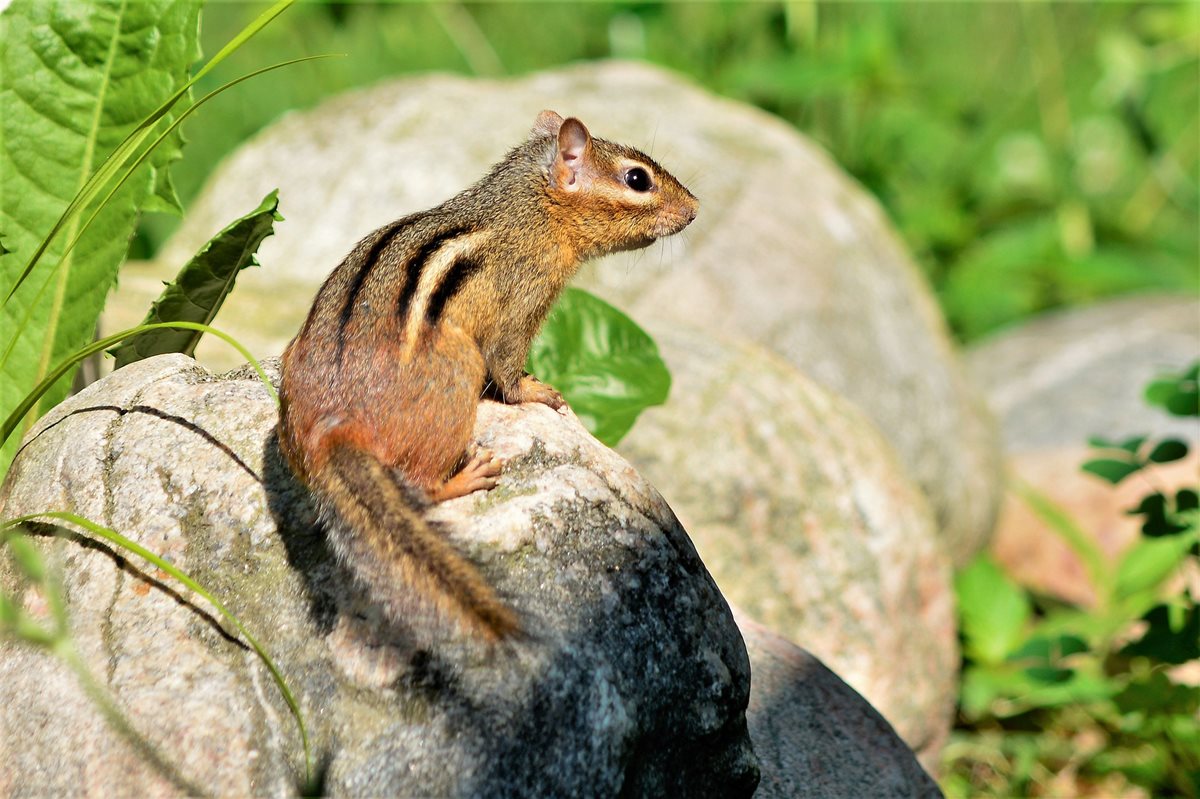
Chipmunks are known for being cute little woodland creatures. They can be found in forests, areas dense with shrubbery, or other ground covers that are ideal places for chipmunks to scavenge while avoiding predators.
In the U.S., there are two types of chipmunks commonly encountered. These include the Eastern chipmunk and the least chipmunk. Least chipmunks have an expansive range across north-central and the western U.S. But you’ll only find Eastern chipmunks east of the Mississippi River.
Both species of chipmunks are diurnal. That means that these creatures are most active throughout the day and rest at night.
Chipmunk Lifespan
Chipmunks can give birth to one or two litters each year. Typically, both species breed in the spring. But the Eastern Chipmunk often breeds a second time in late summer to produce an additional litter.
For both types of chipmunks, the gestation period lasts approximately 30 days. At that point, the female may give birth to a litter of two to six kits. Newborn chipmunks are hairless. In time, their sealed eyes will open, and their ears will fully develop. Because chipmunks nest in burrows, you aren’t likely to spot baby chipmunks until they look like smaller adults.
Although they can live longer in captivity, most wild chipmunks only live for two years.
Do Chipmunks Hibernate?
Chipmunks do not hibernate! But you may rarely see these pests during winter. Instead, they try their best to avoid chilly conditions in a state of rest. Throughout the cold weather, chipmunks try to conserve energy. From late fall to early spring, the pests spend the majority of their time sleeping underground. But on warm days, chipmunks may wake up to forage for food outside.
Chipmunk Burrows
A chipmunk’s burrow is a key part of its existence. Chipmunks build elaborate burrows with nesting rooms and storage rooms. Throughout the warm months, the critters will spend their time building up stores of nuts and seeds to eat throughout the winter.
The hole to a chipmunk burrow may only be approximately one to two inches wide. It is not uncommon for the chipmunk to have multiple openings into its burrow system. In most cases, the chipmunk will have one entrance open and keep the others covered with leaves to deter unwelcome guests.
The entrance may be small. But the small openings can lead to an extensive system that may be up to three feet deep and 30 feet long. In colder months, the chipmunk will spend most of its time in the burrow. With a supply of food at the ready, they rarely venture out in the winter.
What Do Chipmunks Eat?
Chipmunks naturally eat nuts, seeds, mushrooms, berries, plant bulbs, insects, bird eggs, and snails. However, they may expand their palette in close proximity to humans if the opportunity arises. You may find chipmunks eating pet food from outdoor bowls and stealing seeds straight from bird feeders.
Additionally, these pests can become a nuisance if you have a garden. They will help themselves to any fruits and vegetables that are available. In a pinch, you may even find a chipmunk gnawing on your trees or any wooden structures, which can create scratches and tooth marks.
Depending on the amount of food available, you may find up to ten chipmunks per acre. That leaves a lot of room for destruction on your property.